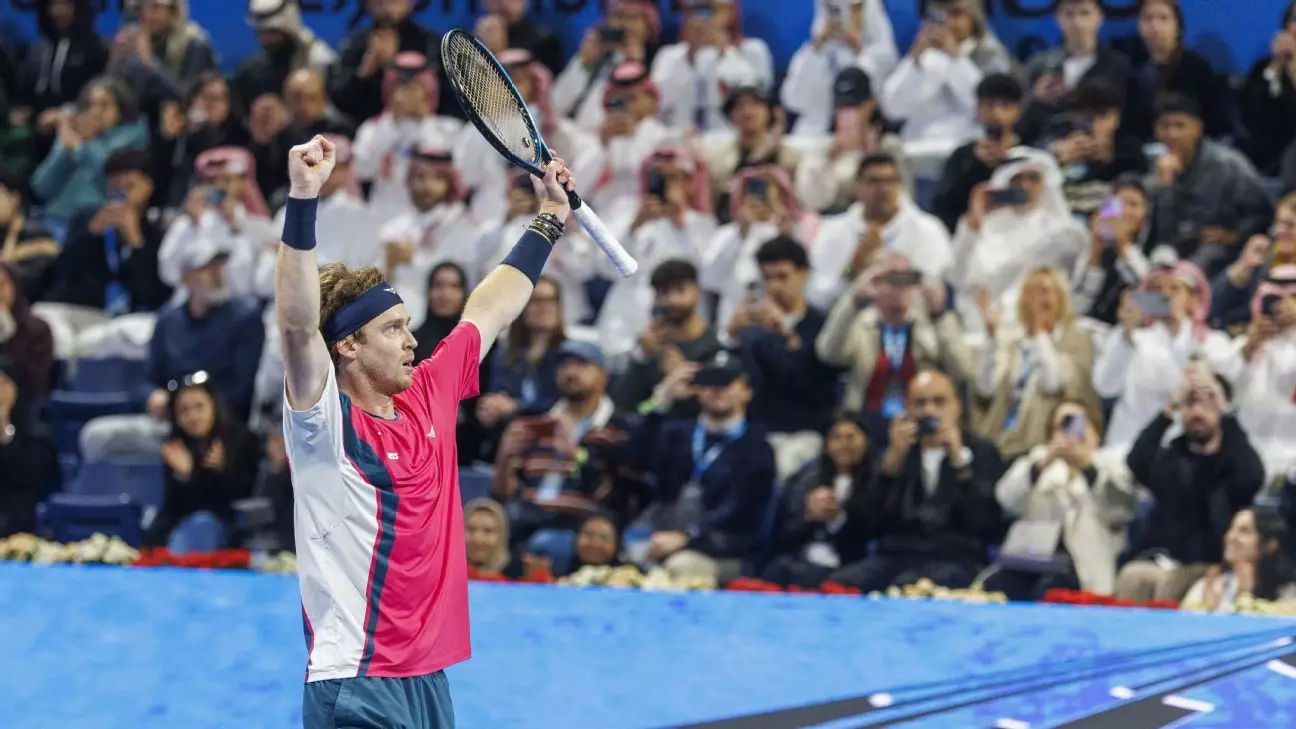Andrey Rublev, currently ranked World No. 9, has emerged from the shadows of mental turmoil to reclaim a sense of peace and purpose in his professional tennis career. In recent conversations, Rublev revealed that he has engaged in meaningful dialogue with Marat Safin, a two-time Grand Slam champion with a history of grappling with his own emotional challenges on the court. This pivotal connection has catalyzed a transformation in Rublev’s approach to mental health, allowing him to compete without the weight of stress and anxiety that once burdened him.
For a significant portion of his career, Rublev battled with emotional instability during matches, which manifested in both his performance and his interactions with officials. The 27-year-old Russian’s journey to emotional well-being has not been linear. His performance at the Qatar Open, where he demonstrated a newfound sense of composure and focus, marks a significant milestone in his path. After enduring a turbulent experience in Dubai the previous year—where he faced default following a controversial outburst—Rublev sought to confront his past and redefine his relationship with competition.
A Reflection on Personal Struggles
Rublev’s candid acknowledgment of his struggles—expressed in interviews—is a reflection of his vulnerability, a trait often glossed over in the world of professional sports. “I was in a loop,” he recounted, admitting to feelings of disorientation and despair that lingered for years. Such reflections reveal the harsh reality that many athletes face beneath the glossy surface of their public personas. His honest introspection draws attention to the oft-neglected discussion of mental health in sports, challenging the stigma surrounding mental illness and encouraging dialogue about emotional well-being.
The weight of his emotional struggles was exacerbated by a protracted period of seeking help through antidepressants. However, after realizing that they weren’t producing desired results, Rublev made the bold choice to discontinue their use. This decision represents a critical turning point in his life, leading him to the transformative conversation with Safin. The guidance Rublev received from the former tennis star has been pivotal, as Safin’s experiences resonated deeply with Rublev, illuminating paths toward self-awareness and emotional resilience.
Finding Balance and Future Aspirations
Rublev described his current state of mind as neutral—neither overwhelmed with joy nor mired in despair. This neutrality has granted him a stable foundation from which he can compete more effectively. “At least I found a base,” Rublev emphasized, marking this revelation as an essential first step in his ongoing journey. It is crucial to understand that this newfound equilibrium does not imply complete contentment; rather, it signifies a willingness to engage with his emotions constructively and proactively.
As he prepares to embark on his Dubai campaign against French qualifier Quentin Halys, Rublev’s story serves as an ongoing reminder of the complexities of an athlete’s mental landscape. The confluence of sports, mental health, and personal growth is an evolving narrative that Rublev is now navigating with greater clarity and purpose. His experiences resonate not only within the sphere of tennis but also extend to a broader audience, emphasizing the importance of self-exploration, resilience, and the power of compassionate dialogue in overcoming life’s challenges.


Leave a Reply